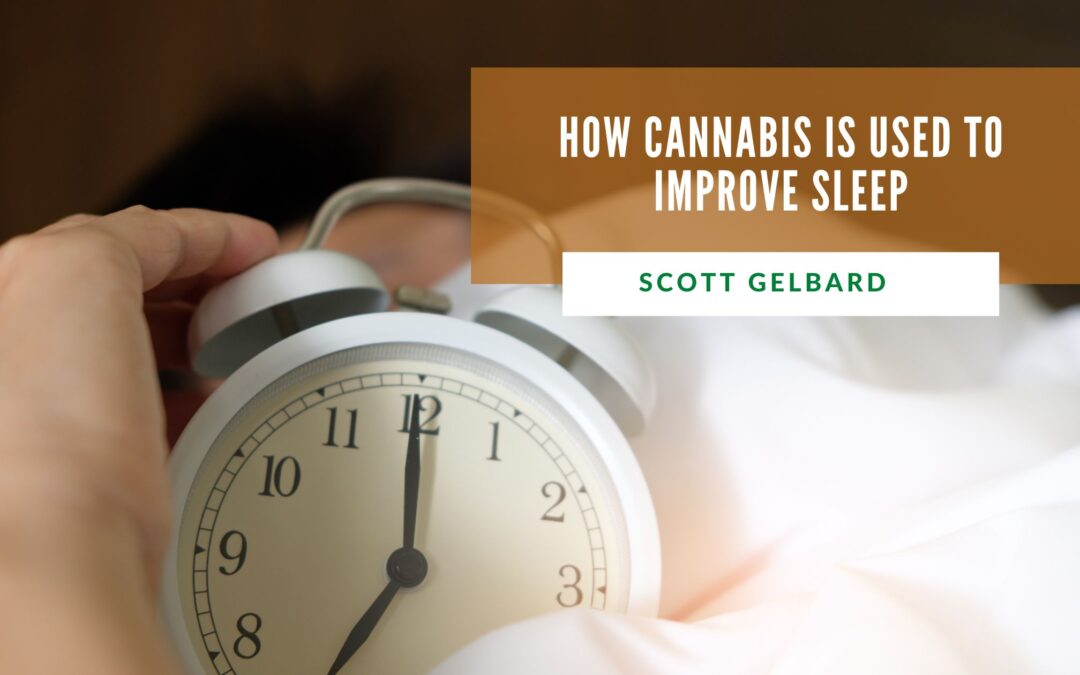Cannabis has long been a subject of intrigue in both medical and recreational realms, with sleep improvement being one of its most discussed benefits. As societies increasingly embrace the therapeutic uses of cannabis, understanding its impact on sleep becomes crucial.
Cannabis contains a range of bioactive compounds, with THC and CBD being the most prominent. The relationship between cannabis and sleep has been a subject of research for decades, with studies examining how these compounds interact with the body’s endocannabinoid system, a network integral to regulating sleep.
Traditional medications for sleep disorders can have side effects and lead to dependency. Cannabis, with its relatively low side-effect profile, has emerged as a potential alternative or adjunct treatment. Understanding the role of cannabis in sleep requires unraveling its complex interactions with the body’s physiology and its influence on the sleep-wake cycle.
Effects on Sleep Cycles
Cannabis significantly impacts sleep architecture, which includes the various stages of sleep. Deep sleep is thought to be the most vital period of rest, and THC has been shown to lengthen this state. For both physical healing and memory consolidation, deep sleep is essential. THC does, however, also tend to reduce REM sleep, which is the dream-related sleep period. While reduced REM sleep might benefit individuals with PTSD who experience nightmares, it’s essential to understand the long-term implications of altered REM cycles.
Conversely, CBD is gaining attention for its potential to enhance sleep quality without heavily altering sleep stages. It’s thought to contribute to overall sleep quality by reducing anxiety and pain, common culprits behind disrupted sleep. Moreover, CBD does not exhibit the psychoactive effects of THC, making it an option for those who wish to avoid a “high.”
Addressing Sleep Disorders
Cannabis has shown promise in treating various sleep disorders. For individuals who have insomnia, cannabis may reduce the time it takes to fall asleep. The sedative effects of THC play a significant role here, though it’s essential to balance these effects to avoid potential grogginess.
In the case of sleep apnea, a condition characterized by breathing interruptions during sleep, cannabis has been explored as a potential treatment due to its ability to modulate serotonin-mediated apneas. While research is still early, initial findings suggest potential benefits.
Additionally, it seems that cannabis has pain-relieving qualities that may help with sleep indirectly. Sleep disruptions are often caused by chronic pain, and both THC and CBD have analgesic properties that may help improve the quality of sleep by reducing discomfort.
Role of Different Cannabis Compounds
The effectiveness of cannabis in improving sleep varies depending on the specific compounds and their ratios. THC and CBD are the most studied, but other cannabinoids and terpenes also play a role. For instance, CBN (cannabinol) is another cannabinoid that has been associated with sedative effects.
The interaction between these compounds, often referred to as the “entourage effect,” suggests that the combined effects of cannabis’s various components may be greater than those of individual compounds.
The method of consumption also influences the effectiveness of cannabis for sleep. Inhaling cannabis produces quicker effects but with a shorter duration, whereas edibles have a delayed onset but longer-lasting impact. This distinction is crucial for individuals seeking to use cannabis for sleep improvement, as the timing and duration of effects can significantly influence sleep patterns.
Cannabis, with its myriad of compounds and complex interactions with the body, presents a promising yet intricate option for improving sleep. While THC and CBD are at the forefront, the potential and synergistic effects of other compounds warrant further exploration. It’s essential for individuals considering cannabis for sleep enhancement to understand the nuances of its use, including the types of combinations, dosages, and methods of consumption. As research continues to unfold, cannabis could become a more mainstream tool in the battle against sleep disorders, offering a natural alternative to traditional sleep medications.

